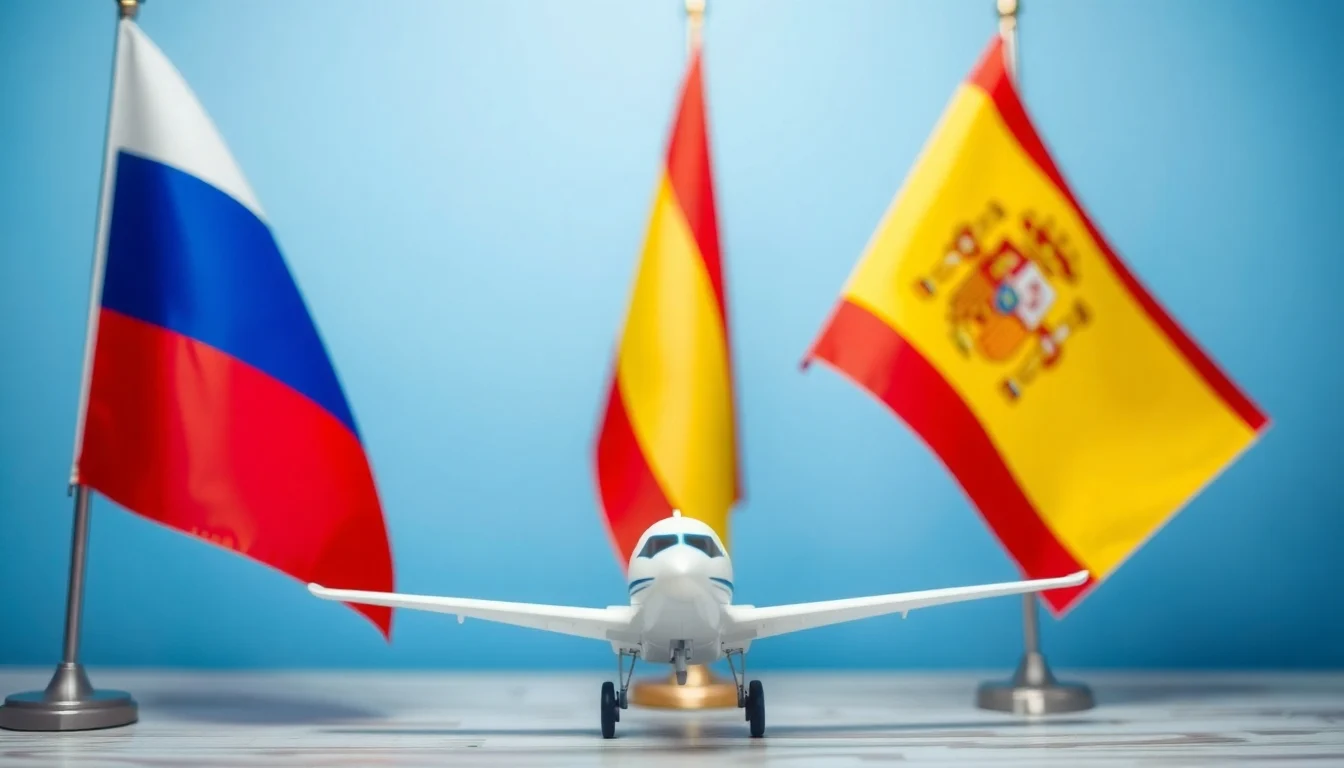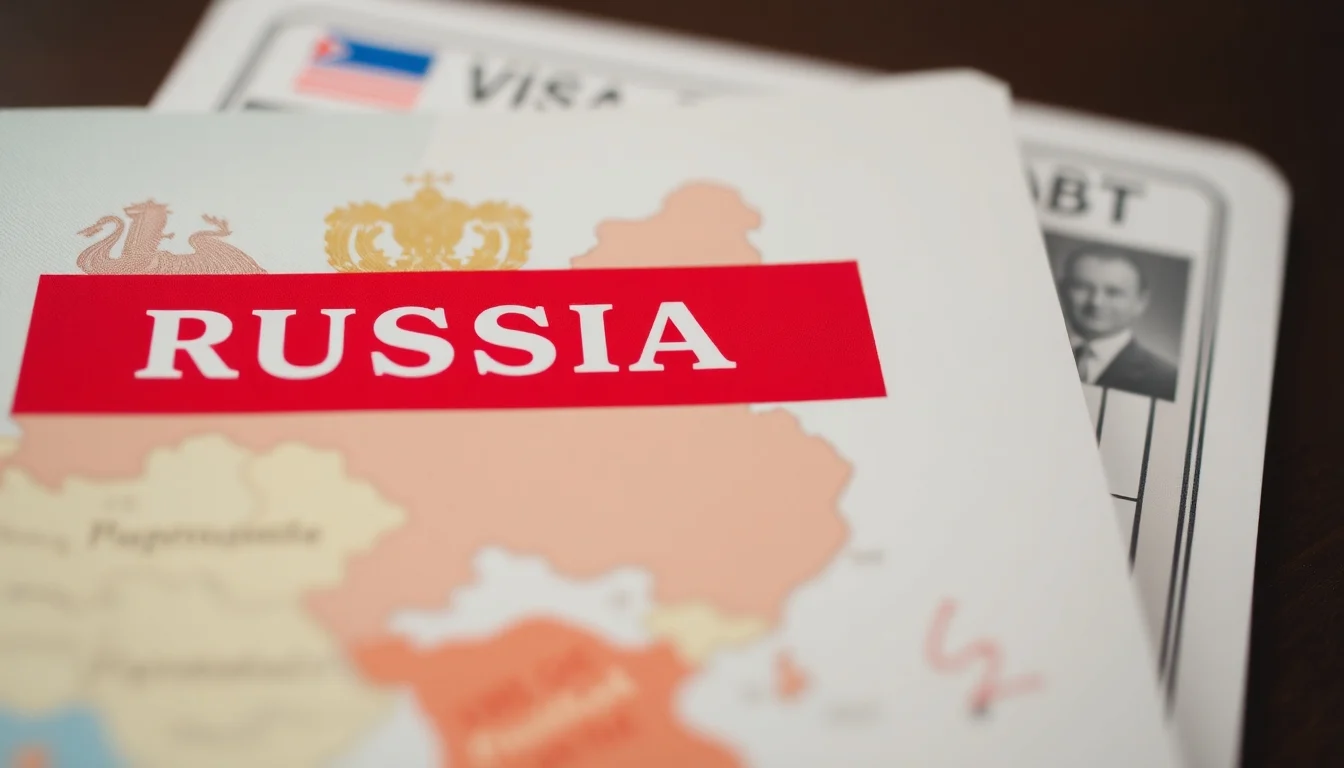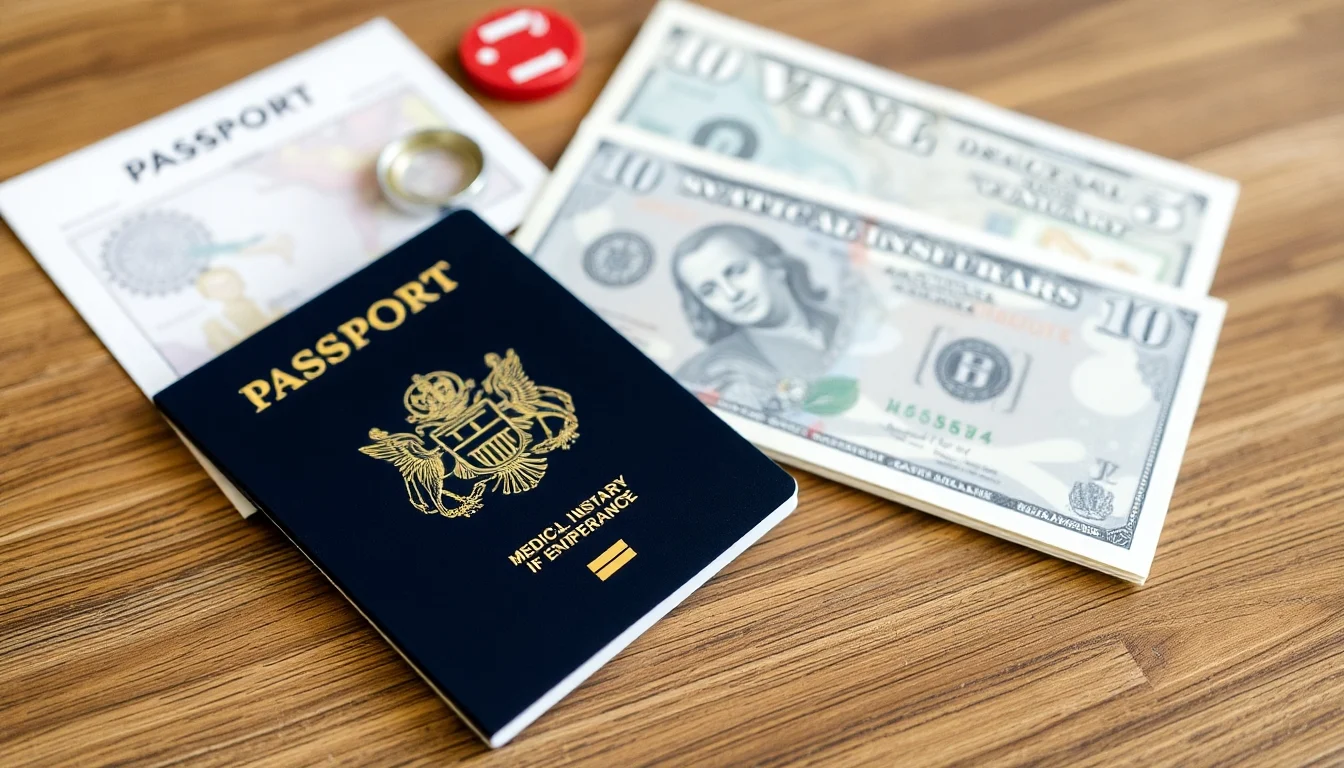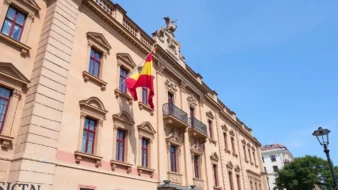Entry Rules to Spain for Russians in 2025
Spain remains one of the most popular travel destinations for Russians, and in 2025, it continues to attract tourists with its beaches, culture, and history. However, to ensure your trip goes smoothly, it's important to familiarize yourself in advance with the current entry requirements. In this article, we will go over everything Russian citizens need to know to cross the Spanish border: from required documents and passport conditions to financial guarantees and other important details. Our goal is to make your trip as comfortable and worry-free as possible by providing all up-to-date information in one place.
 Spain is part of the Schengen Area, so Russian citizens must obtain either a Schengen or a national visa to enter. This requirement remains unchanged in 2025: entering the country without a visa is not allowed. A Schengen visa grants access not only to Spain but also to other Schengen countries, allowing free movement within the zone during its validity period.
Spain is part of the Schengen Area, so Russian citizens must obtain either a Schengen or a national visa to enter. This requirement remains unchanged in 2025: entering the country without a visa is not allowed. A Schengen visa grants access not only to Spain but also to other Schengen countries, allowing free movement within the zone during its validity period.
 If you're planning a trip to Spain, it’s important to understand the different visa types and how to choose the right one. Everything depends on the purpose and duration of your stay. Spanish visas are divided into two main categories: short-term (type C) and long-term (type D). Let’s break down their differences and who they’re best suited for.
Spain offers two main visa types:
If you're planning a trip to Spain, it’s important to understand the different visa types and how to choose the right one. Everything depends on the purpose and duration of your stay. Spanish visas are divided into two main categories: short-term (type C) and long-term (type D). Let’s break down their differences and who they’re best suited for.
Spain offers two main visa types:
 To obtain a visa for Spain, you will need to gather a specific set of documents. The list differs slightly for short-term visas (Type C) and long-term visas (Type D, national), but the basic requirements are similar. Let's go through everything step by step.
Your passport is the foundation. For a Type C visa, it must be valid for at least 3 months after your return from the trip, and for a Type D visa, it must be valid for at least 6 months. In any case, your passport should have at least two blank pages for the visa and stamps. Photos are also mandatory: two color photos, 3.5 x 4.5 cm in size, taken on a light background within the last 6 months.
You need to fill out the application form in either English or Spanish: for a Type C visa, the C-form is required, and for a national visa, the D-form.
Medical insurance is another crucial point. For a Type C visa, you will need an insurance policy worth at least 30,000 euros, valid for the entire duration of your trip. If you are applying for a Type D visa, the insurance requirements depend on the purpose of your stay, so it's best to check with the consulate.
Financial guarantees are also important: for a Type C visa, you just need to show a bank statement proving you have at least 95 euros per person for each day of your stay. For a national visa, you must prove that you have enough funds for the entire duration of your stay in Spain.
The proof of the purpose of your trip depends on your reason for visiting. If it’s tourism, you will need a hotel or apartment reservation. If you are visiting friends or relatives, you will need an invitation from them. For a business trip, you will need a letter from a Spanish company, for studies, a document showing enrollment in an educational institution, and for work, a work contract.
You will also need to provide tickets: a round-trip booking will suffice, whether by plane or other transportation. Don't forget an employment or student certificate, which should include your position, salary, or student status.
If you are applying for a Type D visa, additional documents may be required. Depending on the purpose of your trip, this might include a criminal background check, a medical certificate, or documents about your family status. It’s best to check in advance what exactly is needed for your situation.
Tip: All documents, except the passport, must be translated into Spanish or English and notarized if required. Sometimes, the consulate requests additional documents, so be sure to double-check the current list on the consulate’s website before submitting. With this approach, the process will go smoothly, and your visa will soon be in your hands!
To obtain a visa for Spain, you will need to gather a specific set of documents. The list differs slightly for short-term visas (Type C) and long-term visas (Type D, national), but the basic requirements are similar. Let's go through everything step by step.
Your passport is the foundation. For a Type C visa, it must be valid for at least 3 months after your return from the trip, and for a Type D visa, it must be valid for at least 6 months. In any case, your passport should have at least two blank pages for the visa and stamps. Photos are also mandatory: two color photos, 3.5 x 4.5 cm in size, taken on a light background within the last 6 months.
You need to fill out the application form in either English or Spanish: for a Type C visa, the C-form is required, and for a national visa, the D-form.
Medical insurance is another crucial point. For a Type C visa, you will need an insurance policy worth at least 30,000 euros, valid for the entire duration of your trip. If you are applying for a Type D visa, the insurance requirements depend on the purpose of your stay, so it's best to check with the consulate.
Financial guarantees are also important: for a Type C visa, you just need to show a bank statement proving you have at least 95 euros per person for each day of your stay. For a national visa, you must prove that you have enough funds for the entire duration of your stay in Spain.
The proof of the purpose of your trip depends on your reason for visiting. If it’s tourism, you will need a hotel or apartment reservation. If you are visiting friends or relatives, you will need an invitation from them. For a business trip, you will need a letter from a Spanish company, for studies, a document showing enrollment in an educational institution, and for work, a work contract.
You will also need to provide tickets: a round-trip booking will suffice, whether by plane or other transportation. Don't forget an employment or student certificate, which should include your position, salary, or student status.
If you are applying for a Type D visa, additional documents may be required. Depending on the purpose of your trip, this might include a criminal background check, a medical certificate, or documents about your family status. It’s best to check in advance what exactly is needed for your situation.
Tip: All documents, except the passport, must be translated into Spanish or English and notarized if required. Sometimes, the consulate requests additional documents, so be sure to double-check the current list on the consulate’s website before submitting. With this approach, the process will go smoothly, and your visa will soon be in your hands!
Go back to the blog
Entry Rules for Traveling to Spain from Russia
 Spain is part of the Schengen Area, so Russian citizens must obtain either a Schengen or a national visa to enter. This requirement remains unchanged in 2025: entering the country without a visa is not allowed. A Schengen visa grants access not only to Spain but also to other Schengen countries, allowing free movement within the zone during its validity period.
Spain is part of the Schengen Area, so Russian citizens must obtain either a Schengen or a national visa to enter. This requirement remains unchanged in 2025: entering the country without a visa is not allowed. A Schengen visa grants access not only to Spain but also to other Schengen countries, allowing free movement within the zone during its validity period.
What Documents Are Required?
To travel to Spain, Russian citizens must prepare and present the following set of documents:- Passport — valid for at least 3 months after the intended departure from the Schengen Area, with at least two blank pages for visas and stamps.
- Visa — a type C visa for short stays (up to 90 days within a 180-day period) or a national type D visa for long-term stays.
- Proof of travel purpose — documentation that confirms the reason for your trip, such as a hotel booking, invitation from relatives, friends or business partners, or tickets to events.
- Financial guarantees — proof of sufficient funds for your stay (see details below).
- Medical insurance — a policy with a minimum coverage of €30,000, valid for the entire duration of the stay and covering medical expenses and possible repatriation.
Passport Requirements and Financial Guarantees
In addition to being valid for at least 3 months beyond your planned departure from the Schengen zone and having two blank pages, your passport must be in good physical condition. Damaged documents may lead to denial of entry. To prove financial solvency, you must provide a bank statement, proof of income, or a sponsorship letter. The minimum amount set by Spanish authorities is €95 per day per person, with a minimum of €855 for the entire trip. The more convincing your financial documents are, the fewer questions you’ll face at the border.Types of Visas for Russian Citizens
 If you're planning a trip to Spain, it’s important to understand the different visa types and how to choose the right one. Everything depends on the purpose and duration of your stay. Spanish visas are divided into two main categories: short-term (type C) and long-term (type D). Let’s break down their differences and who they’re best suited for.
Spain offers two main visa types:
If you're planning a trip to Spain, it’s important to understand the different visa types and how to choose the right one. Everything depends on the purpose and duration of your stay. Spanish visas are divided into two main categories: short-term (type C) and long-term (type D). Let’s break down their differences and who they’re best suited for.
Spain offers two main visa types:
- Short-term visa (type C)
- Long-term visa (type D)
Short-Term Visa (Type C)
This is a Schengen visa that allows you to stay in Spain and other Schengen countries for up to 90 days within any 180-day period. It’s ideal for short trips. Common reasons to apply include:- Tourism: beach vacations on the Costa del Sol or sightseeing in Barcelona
- Visiting friends or family
- Business trips: meetings with partners or attending trade shows
- Short courses: such as a few weeks of Spanish language study
- Single-entry — for one trip
- Multiple-entry (multivisa) — allows multiple entries within the validity period
Long-Term Visa (Type D)
This is a national visa required if you plan to stay in Spain for more than 90 days. It’s suitable for more serious and long-term purposes:- Studying — enrollment in a university or long-term language courses
- Working — if you have a job offer or are starting a business
- Family reunification — moving to join a spouse or parents living in Spain
- Long-term programs — such as volunteering or academic research
Which Visa Should You Choose?
If you’re going on vacation, visiting friends, or attending a short business meeting — choose the short-term type C visa. If your goal is to study, work, or live in Spain for more than three months — apply for a long-term type D visa.Features of Spain’s National Visa (Type D)
The national type D visa differs from the Schengen visa in several important ways:- Specific purpose — The visa is issued for a clearly defined reason (study, work, family reunification, etc.). After issuance, you cannot simply change your plans — for example, switch from studying to working.
- Validity period — Usually from 3 months to 1 year. Upon arrival in Spain, you can extend your stay by applying for a residence permit.
- More documentation required — You’ll need to collect additional paperwork. For instance, for a student visa — an enrollment letter; for a work visa — a job contract.
- Right to work — Some national visas (such as work visas or for digital nomads) allow you to work in Spain immediately. A type C visa does not provide this right.
Documents Required for Visa Application
 To obtain a visa for Spain, you will need to gather a specific set of documents. The list differs slightly for short-term visas (Type C) and long-term visas (Type D, national), but the basic requirements are similar. Let's go through everything step by step.
Your passport is the foundation. For a Type C visa, it must be valid for at least 3 months after your return from the trip, and for a Type D visa, it must be valid for at least 6 months. In any case, your passport should have at least two blank pages for the visa and stamps. Photos are also mandatory: two color photos, 3.5 x 4.5 cm in size, taken on a light background within the last 6 months.
You need to fill out the application form in either English or Spanish: for a Type C visa, the C-form is required, and for a national visa, the D-form.
Medical insurance is another crucial point. For a Type C visa, you will need an insurance policy worth at least 30,000 euros, valid for the entire duration of your trip. If you are applying for a Type D visa, the insurance requirements depend on the purpose of your stay, so it's best to check with the consulate.
Financial guarantees are also important: for a Type C visa, you just need to show a bank statement proving you have at least 95 euros per person for each day of your stay. For a national visa, you must prove that you have enough funds for the entire duration of your stay in Spain.
The proof of the purpose of your trip depends on your reason for visiting. If it’s tourism, you will need a hotel or apartment reservation. If you are visiting friends or relatives, you will need an invitation from them. For a business trip, you will need a letter from a Spanish company, for studies, a document showing enrollment in an educational institution, and for work, a work contract.
You will also need to provide tickets: a round-trip booking will suffice, whether by plane or other transportation. Don't forget an employment or student certificate, which should include your position, salary, or student status.
If you are applying for a Type D visa, additional documents may be required. Depending on the purpose of your trip, this might include a criminal background check, a medical certificate, or documents about your family status. It’s best to check in advance what exactly is needed for your situation.
Tip: All documents, except the passport, must be translated into Spanish or English and notarized if required. Sometimes, the consulate requests additional documents, so be sure to double-check the current list on the consulate’s website before submitting. With this approach, the process will go smoothly, and your visa will soon be in your hands!
To obtain a visa for Spain, you will need to gather a specific set of documents. The list differs slightly for short-term visas (Type C) and long-term visas (Type D, national), but the basic requirements are similar. Let's go through everything step by step.
Your passport is the foundation. For a Type C visa, it must be valid for at least 3 months after your return from the trip, and for a Type D visa, it must be valid for at least 6 months. In any case, your passport should have at least two blank pages for the visa and stamps. Photos are also mandatory: two color photos, 3.5 x 4.5 cm in size, taken on a light background within the last 6 months.
You need to fill out the application form in either English or Spanish: for a Type C visa, the C-form is required, and for a national visa, the D-form.
Medical insurance is another crucial point. For a Type C visa, you will need an insurance policy worth at least 30,000 euros, valid for the entire duration of your trip. If you are applying for a Type D visa, the insurance requirements depend on the purpose of your stay, so it's best to check with the consulate.
Financial guarantees are also important: for a Type C visa, you just need to show a bank statement proving you have at least 95 euros per person for each day of your stay. For a national visa, you must prove that you have enough funds for the entire duration of your stay in Spain.
The proof of the purpose of your trip depends on your reason for visiting. If it’s tourism, you will need a hotel or apartment reservation. If you are visiting friends or relatives, you will need an invitation from them. For a business trip, you will need a letter from a Spanish company, for studies, a document showing enrollment in an educational institution, and for work, a work contract.
You will also need to provide tickets: a round-trip booking will suffice, whether by plane or other transportation. Don't forget an employment or student certificate, which should include your position, salary, or student status.
If you are applying for a Type D visa, additional documents may be required. Depending on the purpose of your trip, this might include a criminal background check, a medical certificate, or documents about your family status. It’s best to check in advance what exactly is needed for your situation.
Tip: All documents, except the passport, must be translated into Spanish or English and notarized if required. Sometimes, the consulate requests additional documents, so be sure to double-check the current list on the consulate’s website before submitting. With this approach, the process will go smoothly, and your visa will soon be in your hands!
Document Submission Process
Submitting documents for a visa to Spain in 2025 is an important process that requires attention to detail and thorough preparation. Here are the main steps you need to follow:- Choosing the Submission Location: For a Type C visa, Russian citizens apply at the Spanish visa center located in various cities across Russia. For a Type D visa, documents are submitted directly to the Spanish Consulate General in Moscow or St. Petersburg. Be sure to check where you need to apply in advance.
- Booking the Submission Appointment: Appointments are made online through the visa center or consulate’s website. It’s recommended to book your time in advance, especially during high season (summer or before holidays), to avoid delays.
- Preparing Documents: Gather all the required documents: your passport, completed application form, photos, insurance, accommodation reservation, tickets, bank statement, and any other documents based on the type of visa you are applying for. Ensure that all documents meet the requirements (e.g., passport validity must be at least 3 months after your trip), and make copies of them.
- Personal Presence: For a Type C visa, you will need to submit biometric data (fingerprints) if you have not done so in the last 5 years. For a Type D visa, biometrics are not required. Personal presence is required for everyone except children under 12 years old.
- Paying Fees: The consular fee for a visa is 90 euros for adults and 45 euros for children aged 6–12 years. For a national visa, the fee may be higher. Payment is accepted in cash or by card at the visa center/consulate.
- Processing Time: A visa is usually processed within 5–10 business days, but in 2025, it may take up to 15 days. National visas are processed in 1 to 3 months, so submit your documents well in advance.
- Receiving the Passport: Once your visa is approved, you can collect it from the visa center or consulate. Courier delivery is also available for an additional fee.
Common Mistakes and Reasons for Refusal
A visa refusal can be avoided if you know the common mistakes applicants make. Here are the main reasons for refusals in 2025:- Incomplete Document Package: Mistakes in the application form, missing documents (e.g., insurance), or non-compliance with requirements often lead to refusals. Double-check everything before submission.
- Insufficient Financial Guarantees: If you cannot prove having at least 95 euros per day of stay (via bank statement), the consulate may refuse your visa. Make sure the amount is sufficient and the source of funds is clear.
- Lack of Proof of Purpose of Trip: Without hotel reservations, an invitation, or other proof of the purpose of your visit, your application may be rejected. Always provide clear documents showing your intentions.
- Passport Issues: A passport with an expiring validity (less than 3 months after your trip) or in poor condition (damaged pages) is a frequent cause for refusal. Check your passport in advance.
- Previous Visa Violations: Overstaying your visa in the past may negatively impact the decision. In such cases, consult with a specialist.
- Mismatch Between Purpose and Documents: For example, applying for a tourist visa without a hotel booking or a business visa without a company invitation. Ensure that your documents support your stated purpose.
Current Entry Conditions for the Year
In 2025, there are some changes to Spain's entry regulations for Russian citizens:- Simplification for Specific Categories: Students, digital nomads, and seasonal workers can now apply online and receive visas more quickly.
- New Financial Requirements: The minimum amount for short-term trips has increased to 95 euros per day per person (previously 90 euros). For long-term visas, you must prove that you have sufficient funds for the entire period.
- Group Visas for Workers: Companies can now submit collective visa applications for seasonal workers, streamlining the process.
- Rules for Property Owners: Property owners in Spain can receive visas for up to 2 years, but they must provide additional documents about their ties to Russia (e.g., a work certificate).


 06/05/2025
06/05/2025  Reading time: 10 min
Reading time: 10 min 



